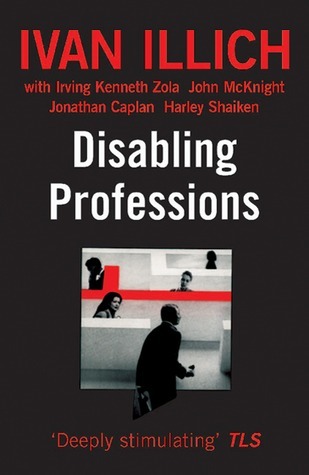Disabling Professions, by Irving Illich with essays by Irving Kenneth Zola, John McKnight, Jonathan Caplin, and Harley Shaiken (2005, 127pp). This collection of essays question, in rather harsh terms, the power and mystery of select professions (and I would argue there are others). The authors assert that we put considerable resources into and delegate considerable power to medicine, education and the law. We have allowed ourselves to be wholly dependent on lawyers for a wide variety of issues, we’ve ceded authority over our bodies and psyches to doctors (among other medical professionals), and we’ve allowed formalized education and specialization in many fields to subvert our lives. Are we as individuals and as societies better off as a result? Illich’s introduction to all of this is mind-numbing and jammed with jargon, but the essays that follow are worth reading. We really should ask if we are better off for allowing, for example, lawyers and medical professionals to elevate themselves to unreachably lofty perches as we grant them extraordinary power over our lives. Unfortunately, while the questions that are posed are well worth considering, there is no real discussion of alternatives in our society. This book is a bit dense, but it’s provocative depictions of constraints on our lives and the questions the essayists pose are eye-opening. Just read this thinking you’ll get any answers.

